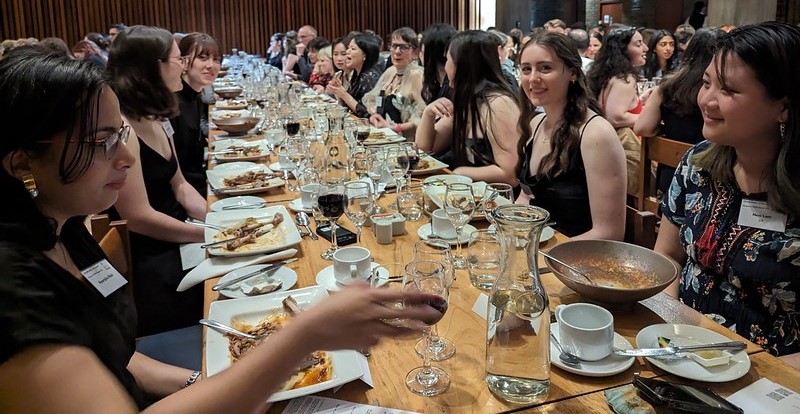March 7, 2025
@
6:00 pm
–
10:00 pm
For International Women’s Day 2025, we are excited to host our second Women in STEM Dinner on Friday 7 March
Following the tremendous success of last year’s inaugural event, this dinner celebrates Churchill’s women in STEM and fosters connections across disciplines and career stages.
This year, we are delighted to welcome our new Master, Professor Sharon Peacock, to give an opening address.
Seating at the dinner will be mixed – JCR, MCR, SCR, and alumni – offering the perfect opportunity to forge new connections with like-minded individuals at all career stages.
Programme
- Arrive from 6.00pm: Register and collect name badge on the concourse
- 6.15–7.00pm: Short talks from a few of our inspiring women in STEM, past and present in the Wolfson Hall
- 7.00pm: Networking drinks reception in the Buttery
- 7.30pm: Formal dinner (common table alumni/fellows/students. There will be a seating plan.)
- Post-dinner drinks in the Buttery
Dress code
Business smart / lounge suit
How to book
Alumni
Use the form below to book for you and up to one guest each.
The young alumni ticket option is for those who graduated 3 years ago or less, and their guest should they bring one.
We would like to make these events self-sustaining so they can continue as a regular feature in the College calendar. To enable this, part of the standard ticket cost goes towards subsidising a student meal.
Any monies contributed via the additional donation box, will go towards our Women in STEM Bursary.
This bursary, formally established in 2021, is open to all female undergraduate students at Churchill College studying any STEM subject. Donations of any size add up to make a big difference, and with your help we hope to endow the bursary so that it can be awarded in perpetuity.
Students and Fellows
Book in the normal way for formals/High Table.
Dinner for all students is subsidised to cost only £10, including drinks, soft and alcoholic options available (you cannot bring your own for this dinner).
It is possible to book 1 guest per person for this event.


